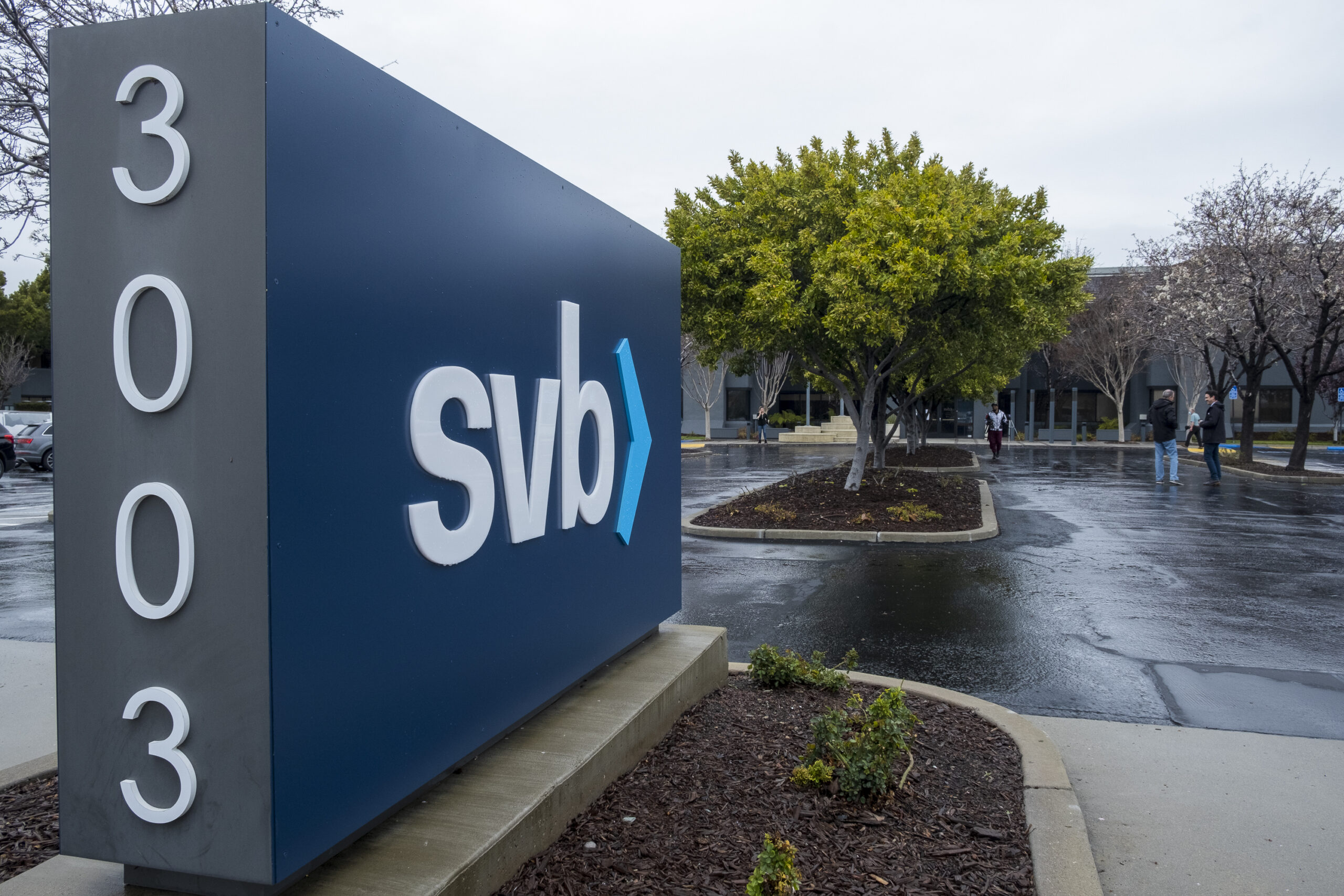The astonishing collapse of Silicon Valley Bank, once a leading financial institution catering to the Bay Area’s tech sector, has some of the region’s influential investors clamoring for the federal government to find a solution for the bank’s shellshocked customers before Monday.
Speaking on CNBC on Friday, Garry Tan, CEO of the startup incubator Y Combinator, said that the bank’s abrupt shutdown by regulators on Friday could wipe out small startups whose funds were locked up with the bank. Startup founders who banked with SVB saw their accounts frozen on Friday and were left scrambling for answers on how to meet payroll and pay expenses.
“These depositors will not survive weeks or months without some sort of plan from the government,” said Tan.
David Sacks, a partner at Craft Ventures, took to Twitter to demand that the federal government arrange a sale to a major bank before Monday, warning that the crisis could spread to other banking institutions.
Where is Powell? Where is Yellen? Stop this crisis NOW. Announce that all depositors will be safe. Place SVB with a Top 4 bank. Do this before Monday open or there will be contagion and the crisis will spread.
— David Sacks (@DavidSacks) March 10, 2023
On Friday afternoon, U.S. Treasury Secretary Janet Yellen convened leaders from the Federal Reserve, the Federal Deposit Insurance Corporation and the Office of the Comptroller of the Currency, according to a readout provided by her office.
The FDIC has been appointed as the bank’s receiver and created a new entity called the Deposit Insurance National Bank of Santa Clara to protect insured depositors. In a press release, the FDIC said that customers will have access to insured deposits on Monday; uninsured depositors will be issued an advance and “receivership certificate” that may make them eligible to recoup funds if SVB’s assets are sold.
More than 85% of SVB’s deposits—totaling about $151 billion—were uninsured, according to a recent regulatory filing.
Yellen “expressed full confidence in banking regulators to take appropriate actions in response and noted that the banking system remains resilient and regulators have effective tools to address this type of event,” according to the U.S. Treasury Department.
The collapse of SVB is the biggest banking failure since the 2008 financial crisis and marked a stunning downfall for an institution that racked up handsome profits for years alongside the growth of the tech sector.
The bank catered to tech startups, marketing itself as a long-term financial partner with offerings like valuation services in addition to traditional banking services, often acting as a lead underwriter for large transactions at mid- to late-stage private tech companies. According to S&P Global, around 40% of its deposits were concentrated in early-stage technology and life science and health care companies—companies hit hard hit by rising interest rates, which have made it more expensive to borrow money.
The bank’s financial challenges came to a head on Wednesday, when it announced the sale of substantially all of its securities portfolio to raise capital meant to be reinvested in assets that were shorter-term and higher yield. The bank estimated a $1.8 billion loss on the sale and said it was planning a deal to raise around $2 billion with the help of a private equity firm.
Shareholders were spooked, leading to a massive selloff in SVB’s stock. Investors including Peter Thiel reportedly advised portfolio companies to pull funds out of the bank. According to a state filing, investors and depositors withdrew $42 billion on Thursday—leaving the bank with a negative cash balance of close to $1 billion.
“Management let it spin out of control,” said Ashu Garg, general partner at Palo Alto’s Foundation Capital, in an interview on Friday.
Randell Leach, CEO of Oakland-based Beneficial State Bank, said that the size and complexity of SVB’s business could mean that regulators—or prospective buyers—are still trying to evaluate the scope of SVB’s risk.
“It’s fairly large and complex; it’s always been a specialty bank. […] They’re unique with their VC funding base,” Leach said.
By Friday afternoon, some Bay Area politicians were calling for swift federal action to safeguard companies who had assets locked up with the bank.
This is an important thread ⬇️
— Senator Scott Wiener (@Scott_Wiener) March 10, 2023
The situation is deadly serious & a massive risk to the tech start-up ecosystem. We need fast federal action. https://t.co/nIANnm3YF6
Rep. Eric Swalwell, who represents parts of the Bay Area, said he was working with colleagues to figure out a way to ensure that deposits are honored. Other high-profile legislators, such as Former House Speaker Nancy Pelosi and Sen. Dianne Feinstein, were quiet on the brewing crisis.
Rep. Adam Schiff called for an investigation into the bank’s management, calling the circumstances “deeply troubling.”
“The FDIC must provide clarity quickly, and the bank’s management and finances must be investigated,” Schiff wrote.
The government could sell SVB’s assets to a larger bank, with murmurs throughout Friday that JP Morgan—which has reportedly been poaching SVB employees for years—could wind up bidding.
A coalition of venture capital firms, including Greylock Partners, Khosla Ventures, Kleiner Perkins and Lightspeed Venture Partners issued a joint statement saying that if SVB were to be bought out, they would be “strongly supportive and encourage our portfolio companies to resume their banking relationship with them.”
But the question is “at what price and at what backstop,” Leach said.
“The market can absorb it, but it is a peculiar one to absorb,” he said. “It does have some complexity to it, and it probably does limit the number of players who would be able to take it.”
